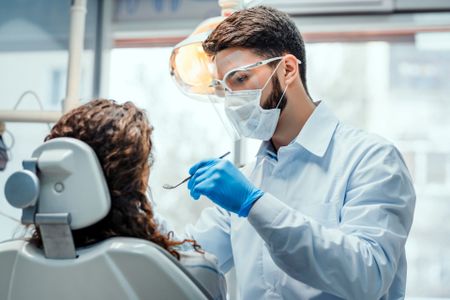Dentists
DDS, Dental Assistants, Registered Hygienists
Spiga and Associates have successfully represented Dentists, Dental Hygienist, and Dental Assistants against The California Dental Board, Drug Enforcement Administration and various local law enforcement agencies. Should you find yourself the subject of an inquiry or investigation, we are here to protect and advise you.
INVESTIGATION
If you have received a call or letter from your licensing board or Department of Consumer Affairs Investigator, it is vitally important you consult an attorney right away. Do not make any statements until you have consulted legal counsel. We have seen the hard experience that can happen to a professional who ignores this warning. No matter how friendly, investigators are NEVER your friend. Even seemingly innocent questions can have a sinister purpose. The first advice we give our clients is free. You have the right to remain silent. Use it!
LITIGATION
Spiga and Associates particularly excel at representing our clients by employing our experience and case-specific knowledge to our client's best advantage. We routinely represent our clients throughout the entire litigation process including hearing and often on appeal when necessary.
CRIMINAL
Criminal arrests or convictions can happen to Dentists just like anyone else, but when they do, they put a Dentist's license on the line. Under current case law, a conviction for virtually any crime regardless of its remoteness from Dental Practice will be considered to be "substantially related" to the Practice of Dentistry and will thus result in disciplinary proceedings before the Dental Board of California. If you have been arrested, charged with, or convicted of a crime it is vitally important you CALL Spiga and Associates. We have 25 years of experience representing clients facing the most serious charges and lead attorney, Carlo A. Spiga is a veteran of over 100 jury trials. There is no better firm to represent you.


